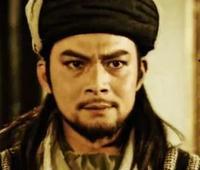The Art of Political Survival
A masterful analysis of how to handle accusations of conspiracy and betrayal through strategic manipulation of evidence, alliance-building, and tactical counterattacks in medieval Chinese martial arts society.

In medieval China’s martial arts world, political intrigue and power struggles often determined one’s fate as much as martial prowess. This examination of crisis management draws from a fascinating case where a martial arts leader faced accusations of impropriety and conspiracy.
The core situation involved the leader of the E-Mei sect being accused of two serious charges: having an affair with a senior official’s wife and being a spy from the Contract Assassins. The brilliance of his response lay in systematically dismantling both accusations through multiple tactical moves.
First, he leveraged existing power structures and relationships. The four elder masters and the enforcement chief supported him, providing a strong foundation of institutional backing. He systematically highlighted how the accusatory letter’s provenance was questionable, challenging its authenticity while avoiding direct confrontation with its purported author.
The leader then employed a masterful stratagem of redirecting suspicion. He publicly questioned the logic of the accusations: Why would Contract Assassins need to steal martial arts secrets when they were already formidable? Why would respected martial artists fall for such obvious deception? This sowed doubt about the accusations while positioning himself as a rational analyzer of the situation.
His masterstroke came in correctly anticipating and preparing for physical confrontation. When the Western Xia martial arts school attacked, he had already positioned it as predictable proof of conspiracy against his sect. The timing allowed him to cast his accuser as part of a larger plot, transforming a personal scandal into an attack on the entire organization.
The strategic depth of his response demonstrates several key principles: Build a strong base of institutional support before crisis hits. Question the logical consistency of accusations rather than just denying them. Anticipate and prepare for how situations may escalate. Most importantly, reframe personal attacks as threats to the broader organization to rally support.
Through careful application of these principles, what began as a potentially career-ending scandal transformed into an opportunity to consolidate power and eliminate rivals. The accuser was executed, the conspiring elder forced into retirement, and the leader’s position became more secure than ever.
This case provides enduring lessons about crisis management, political maneuvering, and the art of turning accusations into advantages. In the complex world of martial arts politics, survival often depended not just on physical skill, but on the ability to navigate treacherous political waters with wisdom and strategic acumen.